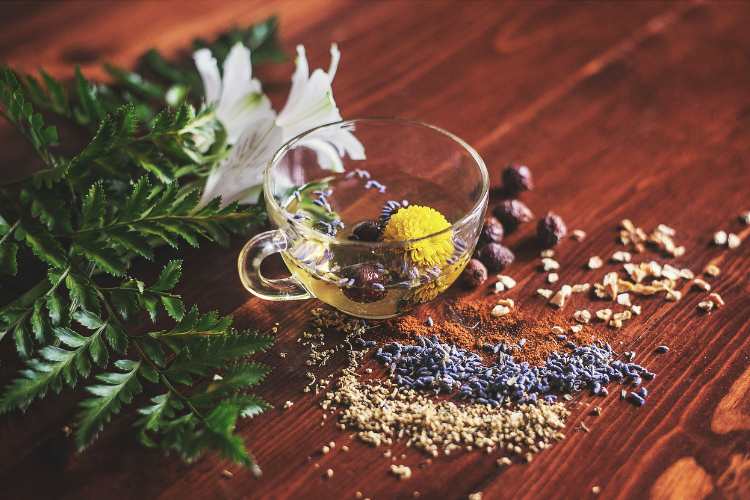
Taste Your Food, Taste Your Life

Many healing traditions reveal that certain areas of the body contain a map of the entire system—such as the ears, feet, hands, and tongue. These microcosms demonstrate the importance of how we interact with the world through these organs: how we listen, how we root ourselves to the earth, how we channel our energy into the world, and how we taste.
Ayurveda, the ancient Vedic holistic medicine system, emphasizes that the quality of what we consume and how we digest it forms the foundation of health and longevity. This concept extends beyond just food to encompass everything we take in through our senses, relationships, and environment.
The Six Tastes of Ayurveda
In Ayurveda, there are six primary tastes: sweet, sour, salty, bitter, pungent, and astringent—each uniquely influencing the body’s energy and function. For example:
- Sweet foods like whole grains, sweet vegetables, and natural sweeteners (as opposed to processed sugars) provide grounding and nourishment.
- Bitter foods like leafy greens naturally cleanse the system.
- Pungent foods like fresh spices invigorate the body.
Ideally, our meals should balance these tastes, creating a harmonious symphony of flavors that reflects this balance in both body and mind.
Tailored Nourishment
Every person has a unique constitution—a blend of the elements earth, water, fire, air, and space—that, along with seasons, climates, and lifestyles, requires different foods to maintain balance. Ayurveda is both a science and an art, guiding us to develop a deep personal awareness of our bodies, strengths, weaknesses, and the choices that help us thrive. Just as different plants need varying soil conditions, rainfall, and sunlight to flourish, so too do we thrive with tailored nourishment.
Blending the Science & the Art
When first exploring Ayurveda, it’s common to encounter ‘food lists’ that identify which foods balance or aggravate specific constitutions or conditions. These lists are a helpful starting point, but over the years, I’ve learned valuable lessons that help blend the science with the art:
- Taste is Primal Wisdom: Your tongue is one of the most intelligent parts of your body. Our bodies constantly undergo subtle changes, and if we rely solely on the mind to make choices, we miss out on the deeper intelligence of the body. The closer we are to our natural balance, the more we can trust our intuition. As we drift away from balance, we may crave things that aren’t truly nourishing. Over time, you learn to distinguish the true satisfaction of a nourishing meal from something consumed merely to placate the mind.
- Creativity & Joy Sustain Healthy Habits: We all eat daily, making food one of the most foundational aspects of life. If you can’t find joy in your relationship with food, you’ll always feel as though you’re swimming upstream. Finding foods that bring joy, nourishment, and true satisfaction, along with discovering ways to prepare and cook them with ease and creativity, is key to sustaining these qualities in your life.
- Apply Principles Over Specifics: Ayurveda was developed in a specific region of the world over 5,000 years ago. While the core principles remain unchanging, environments and cultures have evolved, requiring us to adapt the way we apply this knowledge. I’ve found that the most effective way to incorporate Ayurveda into my life is to embrace the concepts softly, considering my personal history with food (heritage, upbringing), current resources, and capacity. Every Ayurvedic practitioner shares common principles but applies them uniquely–and therein lies the beauty and power of the system.
- How You Eat Reflects How You Engage with Life: Matter follows consciousness—what happens within us at an energetic level will eventually manifest physically. Understanding that the way we approach food—how we purchase it, consume it, enjoy it, and digest it—is a direct mirror of how we interact with life has been one of the most valuable lessons on my healing and spiritual journey. When we observe ourselves with courageous honesty and loving-kindness, it gives us the energy to make positive changes in our approach to food and life.
At its core, Ayurveda teaches that we are one with nature, nourished by the same principles of balance and harmony. Food is our most vital connection to the earth and a reflection of how we engage with life. If you enjoy what you eat and how you consume it, that joy and nourishment will radiate into every other aspect of your life!
So, please, take the time to taste your food and truly taste your life 🙂
Interested in personally curated Ayurvedic recipes? Get in touch!
—
Photo by Lisa Hobbs on Unsplash